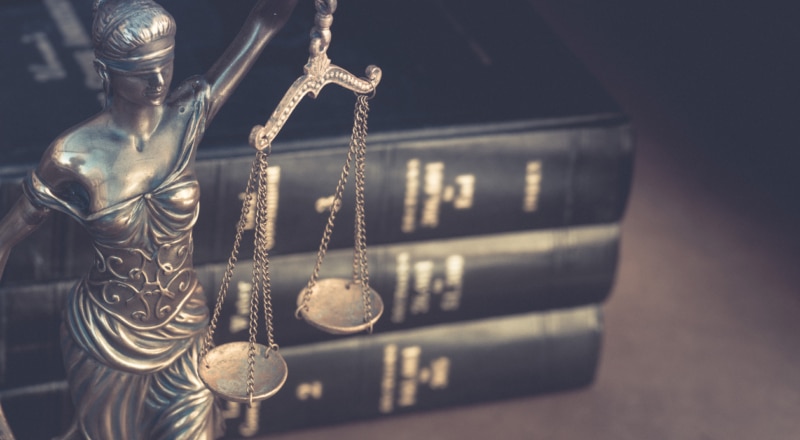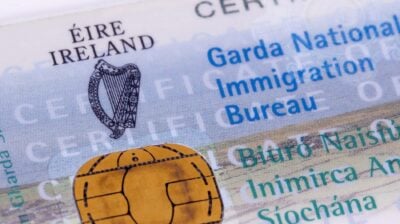What happens at a Children’s Court hearing?
Learn more about what happens if you come before the Children’s Courts in Ireland


This factsheet is an extract from the publication Know Your Rights: The Rights of Children and Young People published by the Children’s Rights Alliance. It is reproduced here with their kind permission. Know Your Rights is a public information project designed to inform everyone, in plain language, of the rights and entitlements children have in Ireland and where to go when they are not respected.
This Children’s Court hears cases involving children and young people under the age of 18. There is a Children’s Court building in Dublin. Outside Dublin, the Children’s Court is usually held in a District Court building on a different day to the court hearings for adults.
What happens at the Children’s Court?
The Children’s Court can deal with most criminal cases that involve a young person under 18 and young adults who were children at the time of the offence. It does not deal with serious offences like manslaughter. Serious offences are sent forward from the Children’s Court to the Central Criminal Court.
Sometimes a young person charged with a serious offence can choose to go before the Judge of the Children’s Court or be tried in an adult court by a jury. You may have a solicitor who you have met with in their office. A solicitor is a type of lawyer. Sometimes this solicitor will represent you in court. In other circumstances the solicitor will let a barrister to represent you instead on his or her behalf.
What should I expect in the Children’s Court?
The courtroom is a formal place and you are expected to behave in a formal way. Ask your solicitor or barrister before your hearing to explain:
- what the courtroom looks like
- who will be attending your hearing
- where everyone will sit
If you don’t understand what is happening during the hearing, ask your solicitor or barrister to explain the hearing to you.
If you come before the Children’s Court, it is important that you continue going to school or attend education or training and do not commit any crimes. The judge may take this into consideration when they are deciding on your case and looking at whether or not you have tried to improve your behaviour.
What are my rights if my case goes to court?
If you have committed a more serious crime, you will go either to the Circuit Court or the Central Criminal Court. You will have the right to have your parent or guardian with you for the hearing.
Will my case be heard differently from an adult case?
Yes. In the Children’s Court, your hearing will be at a different time, on a different day or in a different courtroom than regular adult court hearings. That means you won’t be in the same place as adults who are facing criminal charges. The judge should also run the trial so that you understand what is happening.
Will my identity be made public?
It depends on which court you attend. In general, if you are under 18, the court will sit in private with those present only:
- court staff
- solicitors
- barristers
- your parents or guardians
- the Gardaí
Your name should not appear in the media or online. If someone tells your identity to the public, they can be fined or sent to prison. In the Children’s Court, names are called by initials. When you are waiting for your case to be called, you will be sitting with other children and their parents or guardians and solicitors. Your case might be reported in the newspaper but your name, or any other identifying features, like your school, will not appear.
Will a solicitor (a type of lawyer) represent me in court?
Yes. The type of solicitor will depend on the nature of the charges against you, and your family’s ability to pay for one. If your family cannot afford a solicitor, you may qualify for legal aid (a free lawyer). Before you are appointed a solicitor, the Director of Public Prosecutions must decide if you will go before the Children’s Court or the Central Criminal Court for a jury trial.
Your solicitor will tell you what will happen at the conference and in court. You should always ask your solicitor if you are unsure about what is happening in court or what will happen afterwards.
What could happen when my case comes before the court?
One of three things could happen, the judge may:
- hear your case
- adjourn your case
- ‘strike out your charge’
Your case is heard
If the judge decides to hear your case, they may:
- put off making a decision on the charge and send you to the Young Persons’ Probation Service for a meeting called a family conference, or
- order a probation report – this means that a probation officer will be asked to examine your case and your personal circumstances, or
- convict you of the charge and sentence you
The judge may adjourn your case
This means that the case will be postponed and heard on another day. If this happens, the judge might decide to keep you in custody. This means sending you to a detention centre until your case is heard – this will only happen if the charge is very serious or if you are continually breaking the law. This is known as being held ‘on remand’. If you are held in a detention centre on remand you have the right to be held separately form other young people who have been convicted.
The other option is that the judge may grant you bail. This means that your parent or guardian will have to pay money or promise to pay money to keep you out of detention. If the judge grants you bail, it will probably include strict conditions like:
- a curfew
- staying away from certain people or places
- not drinking alcohol
- not taking illegal drugs
- going to school
If you break these conditions you may be placed in detention. If bail is refused by the Children’s Court, an application for High Court Bail can be made by your solicitor.
Strike out your case
The judge may decide to ‘strike out’ your charge. This means that nothing further will happen in your case, but you could be charged again depending on the circumstances.
What happens if the judge sends me for a family conference?
A family conference is a meeting between you, your family and a probation officer. At this meeting you will work with these people to work out a plan for you to follow instead of you being convicted and sentenced. The aim of the plan is to stop you offending.
What happens if I am found guilty of an offence and convicted?
If you are found guilty of an offence and convicted, the judge will sentence you to either a community sanction or detention. This will depend on:
- the crime you committed
- how serious it was
- your personal circumstances as assessed by a probation officer
The court can order you to:
- pay a fine
- receive probation bond which is when you are required to behave within the law and may also have conditions attached to it such as living in a particular place or staying out of a certain area.
- be detained (if the offence is very serious)
Need more information, advice or guidance?
We offer information, advice and guidance about the issues that matter to you. Our online Youth Information Chat service is for 16 to 25 year olds and is available Monday to Friday, 4pm to 8pm (excluding Bank Holidays).






